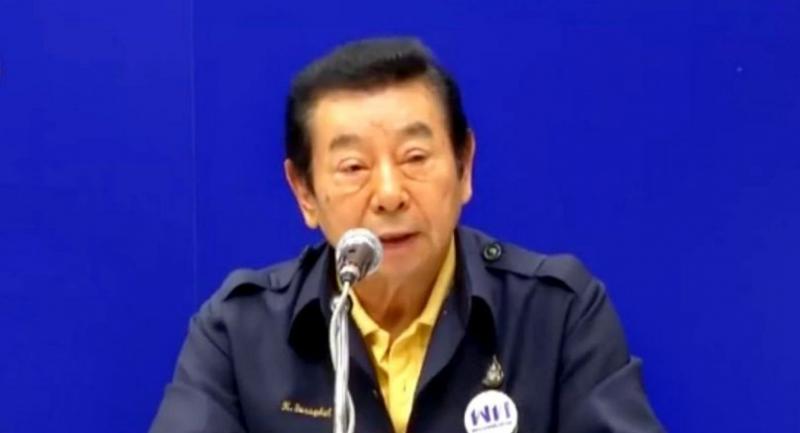Orange card could change election outcome

EC’s new colourcoded penalty has the potential to be decisive for rival blocs.
WITH LAST month’s election stalemate stalling all attempts to form a coalition government, political analysts have warned that “orange cards” issued by the Election Commission (EC) could easily tip the balance in favour of one bloc or another.
The EC, which in the past has slapped electoral offenders with red or yellow cards, issued its first orange card last week. Pheu Thai candidate Surapon Kietchaiyakorn stands accused of buying votes in Chiang Mai province’s Constituency 8.
The orange card revokes his electoral rights for one year and triggers a fresh election in the riding, which he is not allowed to contest. He has asked that the EC decision be reviewed.
If the EC issued sufficient orange cards to MPs who face complaints, it could affect the fortunes of both anti-junta and pro-junta blocs vying to form a coalition government, said Stithorn Thananithichot, a political scientist at King Prajadhipok’s Institute.
The more orange cards issued and the greater the chance that the results could advantage one bloc while disadvantaging the other, Stithorn said.
The final seat counts for those making up the two blocs – one led by Pheu Thai and the other by the Phalang Pracharat Party – may change from the unofficial post-poll estimates once all cards are issued, he said.
Based on unofficial results, the two camps are neck and neck in the MP count – the Pheu Thai-led group has 252 MPs while the Phalang Pracharat bloc is expected to have 248.
“It could be possible that Phalang Pracharat ends up with more while the Pheu Thai camp loses some,” Stithorn said. Both have claimed the right to try and form the next government.
Yuthaporn Issarachai, a political scientist at Sukhothai Thammathirat Open University, estimated that the orange card to Surapon could cost Pheu Thai two seats, which would reduce the combined number of seats held by the Pheu Thai-led bloc from 252 to 250.
“The political equation could change with the issuance of just four or five orange cards to candidates from any party in either camp,” said Yuthaporn. “The representative strength they have in hand could be turned upside down.”
The orange card has been introduced to supplement previous yellow and red cards. By law, before official results are endorsed, the EC can give an orange card to any candidate it deems to have been involved in vote-buying.
A candidate given an orange card can appeal to the Supreme Court.
The fresh election automatically triggered can be contested by the same candidates – except for one given an orange card.
If the carded candidate did not win the earlier election, no fresh election is called, but the disqualified candidate loses all votes received.
And as these votes are not taken into account, it could affect the total number of seats the party could have in Parliament.
Pheu Thai, tipped to win 137 seats, will definitely lose one MP seat with Surapon’s disqualification, Stithorn explained.
The party will also lose the 52,165 votes he received, which would have been counted toward the total number of MP seats the party will be allocated.
Stithorn said it’s likely that, in the fresh election in Constituency 8, many of Surapon’s 52,165 previous supporters will shift their votes to the Future Forward Party, which is in the same anti-junta camp as Pheu Thai.
Future Forward, currently tipped to win around 80 seats, might gain an MP in the constituency, he said, but that does not mean it will end up with more MP seats in total.
“It is not certain whether the total of votes parties receive from the fresh election would alter the number of total MP seats they won in the general election. It depends on which formula the EC uses in calculating and allocating party-list seats.”
Stithorn believes the fresh election outcome could instead give more MP seats to small and medium-sized parties, which will play a crucial role in deciding which camp is successful in forming the government.
And that could affect the possibility of either bloc being able to form a coalition government as well, he noted.
If the EC gives more than five per cent of the total 350 constituency MPs to candidates, it could risk failing to honour a constitutional requirement to endorse 95 per cent of the results within 60 days of the election – by May 24 – Stithorn added.
“Some [people or parties] could file a lawsuit against the EC for not following the roadmap of the election,” he warned.
